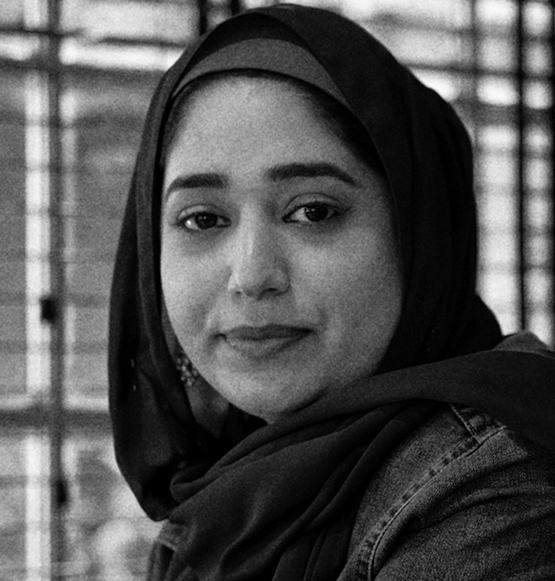
Shefali Rafiq
Shefali Rafiq is a 24-year-old journalist and documentary photographer based in Kashmir. Raised in a conflict-affected village in South Kashmir, she has been documenting underreported stories for over six years. Her work, focused on gender, conflict, health, and human rights, has been published in The Guardian, Open Democracy, Foreign Policy, ARTNews, and The Christian Science Monitor. She is a recipient of the Pulitzer Center grant and winner of the 2022 UN Laadli Media Award and Chennai Photo Biennale Award. Her photographs have been exhibited internationally, including at Photoville in New York under the Pulitzer Center’s “Traditions and Resistance” showcase.
About Work
Shefali Rafiq’s documentary photography captures the lived experiences of people in conflict zones and marginalized communities. Her series spans powerful themes—mental health struggles of Kashmiri women, grief and resilience in families of lynched Muslim men, and the stigma surrounding menstruation among tribal women in Kashmir. She documents everyday resistance and emotional depth in women who fight cultural taboos and economic hardship. Her lens also extends to Sri Lanka’s tea plantation workers battling rising inflation and to a Delhi-based school for underprivileged children run by a local policeman. Across all her work, Shefali foregrounds human dignity, particularly among women and children, offering intimate, empathetic glimpses into stories often overlooked by mainstream media. Her images speak of vulnerability, strength, and the enduring will to survive.
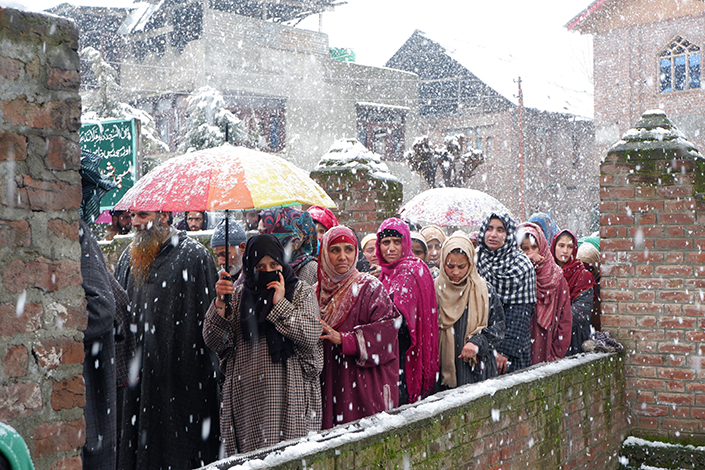
Women mourning at a funeral procession of a local militant Shahid Ahmad who was killed 18 days after joining the militancy group. Women in Kashmir have been directly impacted by the raging conflict that has killed thousands of people. Hundreds of women have been raped and killed. The violence has had an immense impact on the population of the region more so on women who face unprecedented issues including damaged mental health.
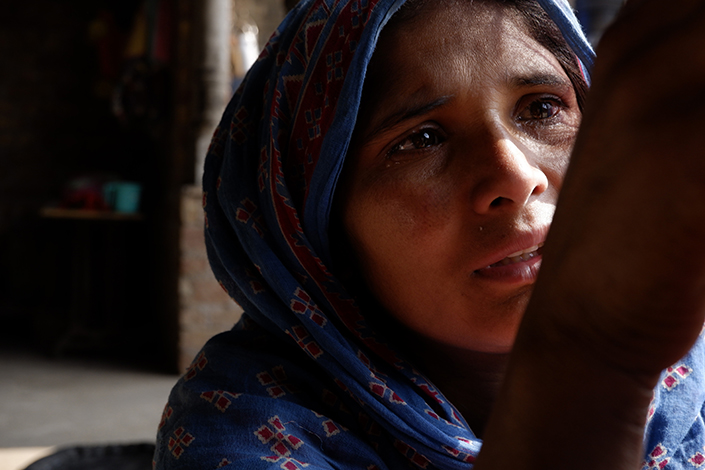
I miss him every second of the day. Our life can never go back to being what it was with him,” said Sajida. Junaid, 32, who worked as a labourer, had left behind a wife and six children, the youngest of whom was seven months old at the time of his father’s killing. While narrating her story, Sajida broke down many times, unable to control the tears flowing down her eyes. She said that the only hope that keeps her going is her children. “If I give up on myself, who will look after them?” “His last words with me to take care of our daughter keep haunting me in my dreams.”
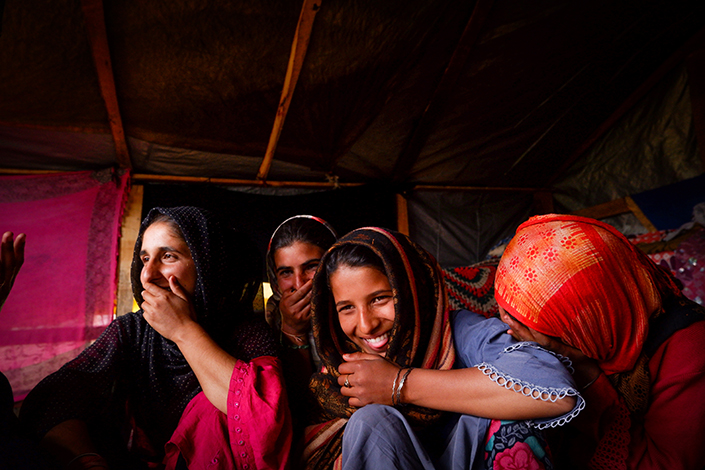
Young women (Kausar, Rukhsana, Neelofar, Shabnam) from left to right from the tribal community burst into laughter when the conversation turns to menstruation in Chandipora area of central Kashmir on the outskirts of Srinagar. Since it is a taboo among the tribal community to not talk about menstruation openly, the women are shy and find it funny to speak about their experiences. When I was interviewing the tribal women, initially they were very shy and hesitant to talk about their experiences. Upon asking them questions, they burst into laughter which is when i took this picture. The tribal community is a conservative and a male dominated one so even talking about menstruation is considered immodest.
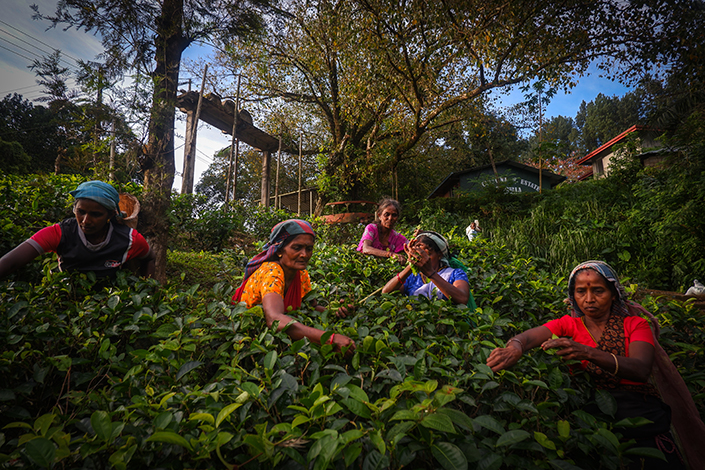
Women working in the tea plantations in Hatton town of Nuwara Elia, around 135 kilometres away from Colombo city. The tea plantation workers have equally suffered during the crisis.
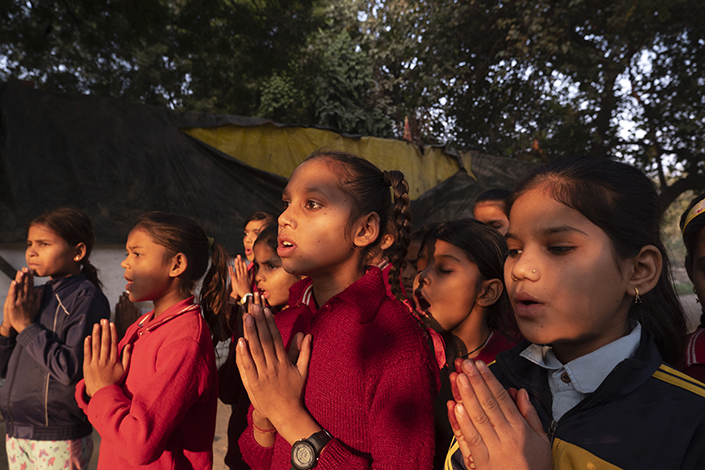
Girl students at the Paathshala offering morning prayers. They form an important part at the Paathshala. In India, underprivileged girls are often married young, the school is not only a source of education but a safe space too for them.

